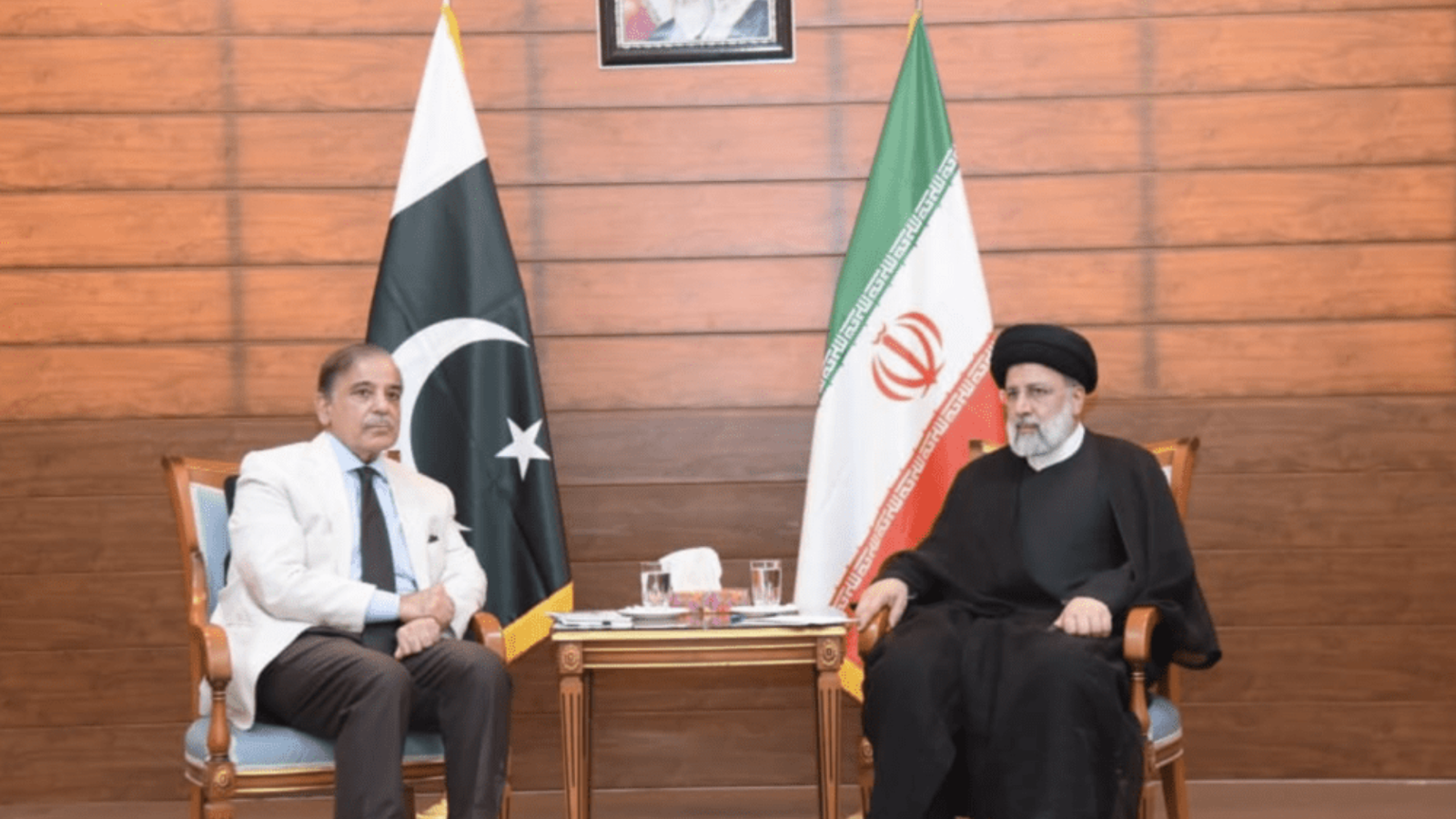ISLAMABAD: Following Iranian President Sayed Ebrahim Raisi’s three-day visit to Pakistan,Iran and Pakistan issued a 28-point joint statement in which they reaffirmed the significance of energy cooperation and power trading, even in the face of a warning from the United States about possible sanctions.
Shortly after the Iranian president left Karachi for Tehran, the Foreign Office issued a joint statement outlining the specifics of the bilateral agreements that both countries had made, including plans for the Pak-Iran gas pipeline project.
The FO made its announcement the day after the US State Department issued a warning regarding the possibility of sanctions due to the trade agreements between the two countries.
According to a representative for the State Department, “We advise anyone considering business deals with Iran to be aware of the potential risk of sanctions.”
According to the statement, the two nations decided to quickly complete the free trade agreement (FTA) and increase their bilateral trade to $10 billion over the following five years by working together on economic initiatives, creating economic free zones, establishing new borders, and shared border markets.
The topic of bilateral ties and cooperation was deliberated during the delegation-level talks between Iran’s President Raisi and Prime Minister Shahbaz Sharif. Raisi visited Pakistan from April 22 to 24, accompanied by a high-level delegation that included senior officials and Foreign Minister Amir Abdollahian.
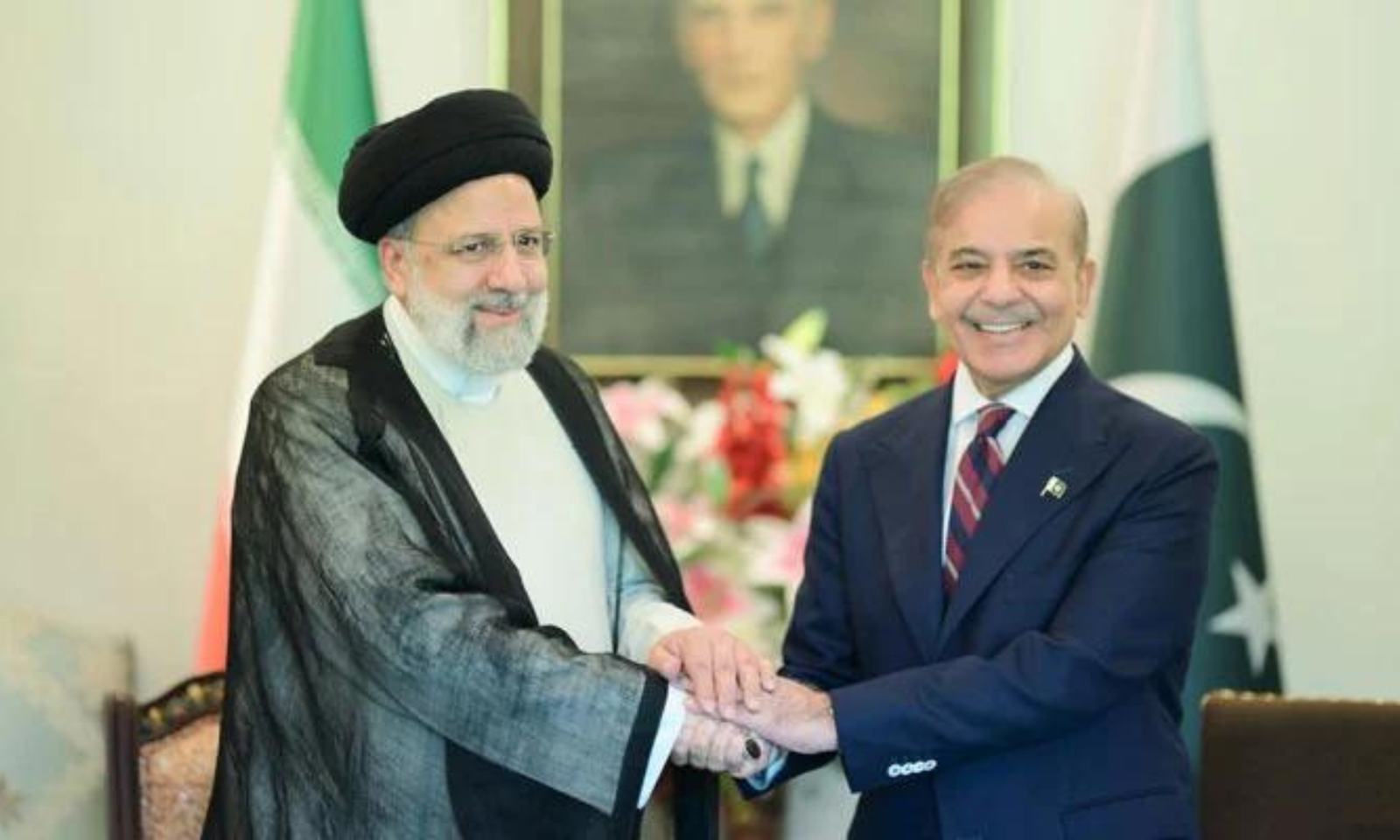
Prosperity’s Border
The two nations reaffirmed the significance of working together in the energy sector, including commerce in electricity, power transmission lines, and the project to build an Iran and Pakistan gas pipeline, and agreed to transform the common border from a “border of peace” to a “border of prosperity.”
The necessity of a collaborative regional economic and connectivity model and a long-term, sustainable economic collaboration was emphasized by both parties, especially for the socioeconomic development of Pakistan’s Balochistan province and Iran’s Sistan-Balochistan.
The two parties signed several agreements, discussed and reviewed the whole range of bilateral relations between Iran and Pakistan, and exchanged opinions on regional and international matters of shared interest.
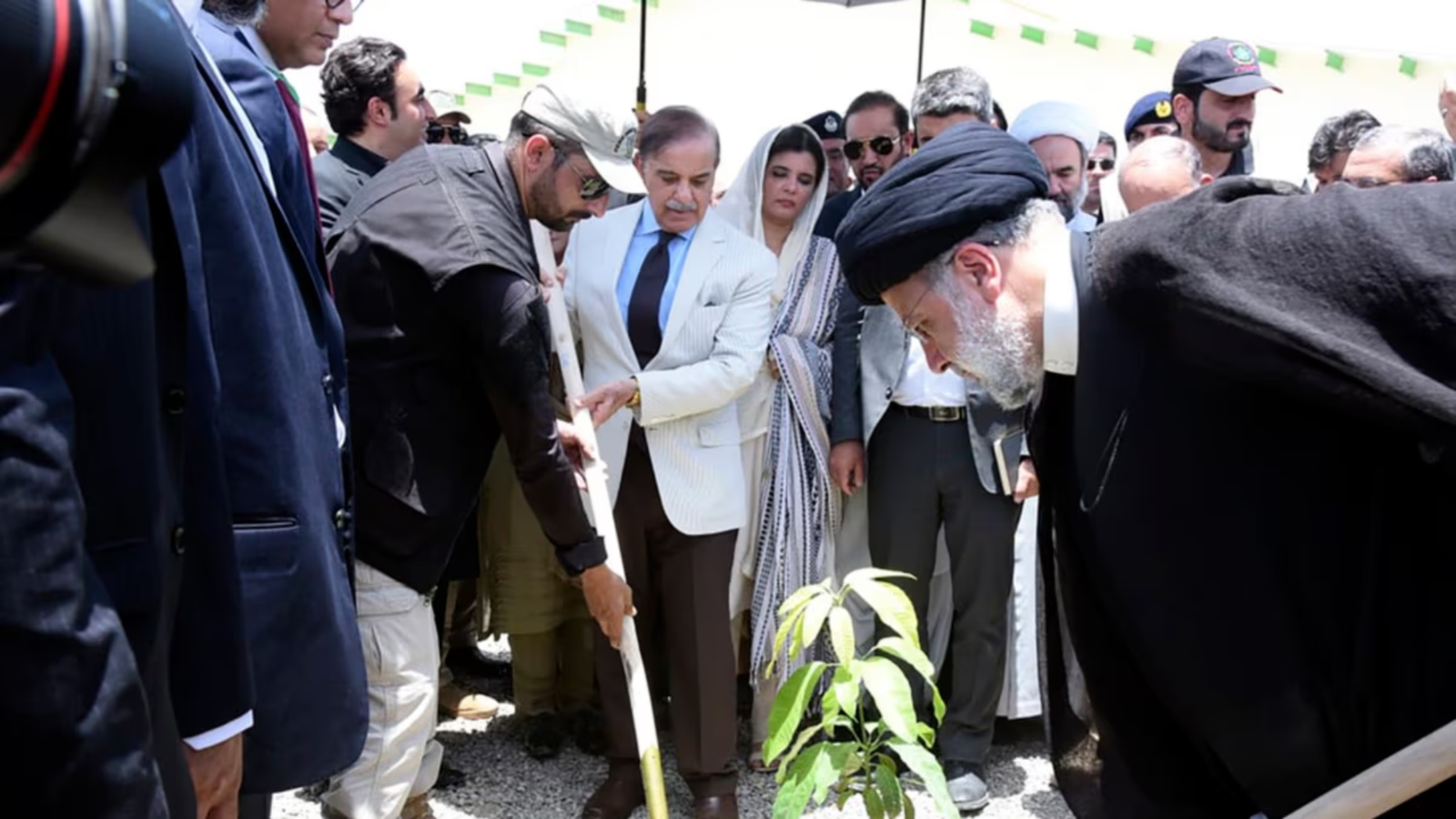
Iran and Pakistan Fostering Closer Ties Between Brothers
Iran and Pakistan reaffirmed their determination to fortify their bilateral fraternal relations by advancing cultural, academic, and tourist endeavors, as well as augmenting tourism to significant holy sites.
The leaders emphasized the significance of establishing consistent collaboration and mutual understanding between the political, military, and security personnel of the two nations in order to counter dangers including terrorism, drug trafficking, human trafficking, kidnapping, hostage-taking, and money laundering.
In order to expedite the completion of the free trade agreement, the parties decided to schedule the 22nd round of the Joint Economic Commission (JEC) negotiations as well as the upcoming meetings of the Joint Business Trade Committee (JBTC) and Annual Bilateral Political Consultations (BPC) as soon as possible.
In order to strengthen economic cooperation, they also decided to make it easier for professionals in the fields of economics and technology to regularly exchange with delegations from the chambers of business in both nations. It was also decided to open the remaining two border sustenance markets and declare the “Reemdan border point” an international border crossing point under TIR.
Organize Barter Commerce
Between the two sides, there was agreement to fully operationalize barter trading systems in order to promote economic and commercial activity, especially under continuing cooperative projects such border sustenance markets.
In terms of connectivity, the parties acknowledged their satisfaction with the frequent shipments of goods made possible by the TIR Convention and decided to fully implement it in order to promote more effective, quick, and barrier-free trade.
The two nations, who are members of the Economic Cooperation Organization (ECO) and the Belt and Road Initiative (BRI), declared their unwavering commitment to strengthening their cooperation in the fields of energy, infrastructure development, and connectivity. They also decided to increase the connections between the ports of Gwadar and Chabahar.
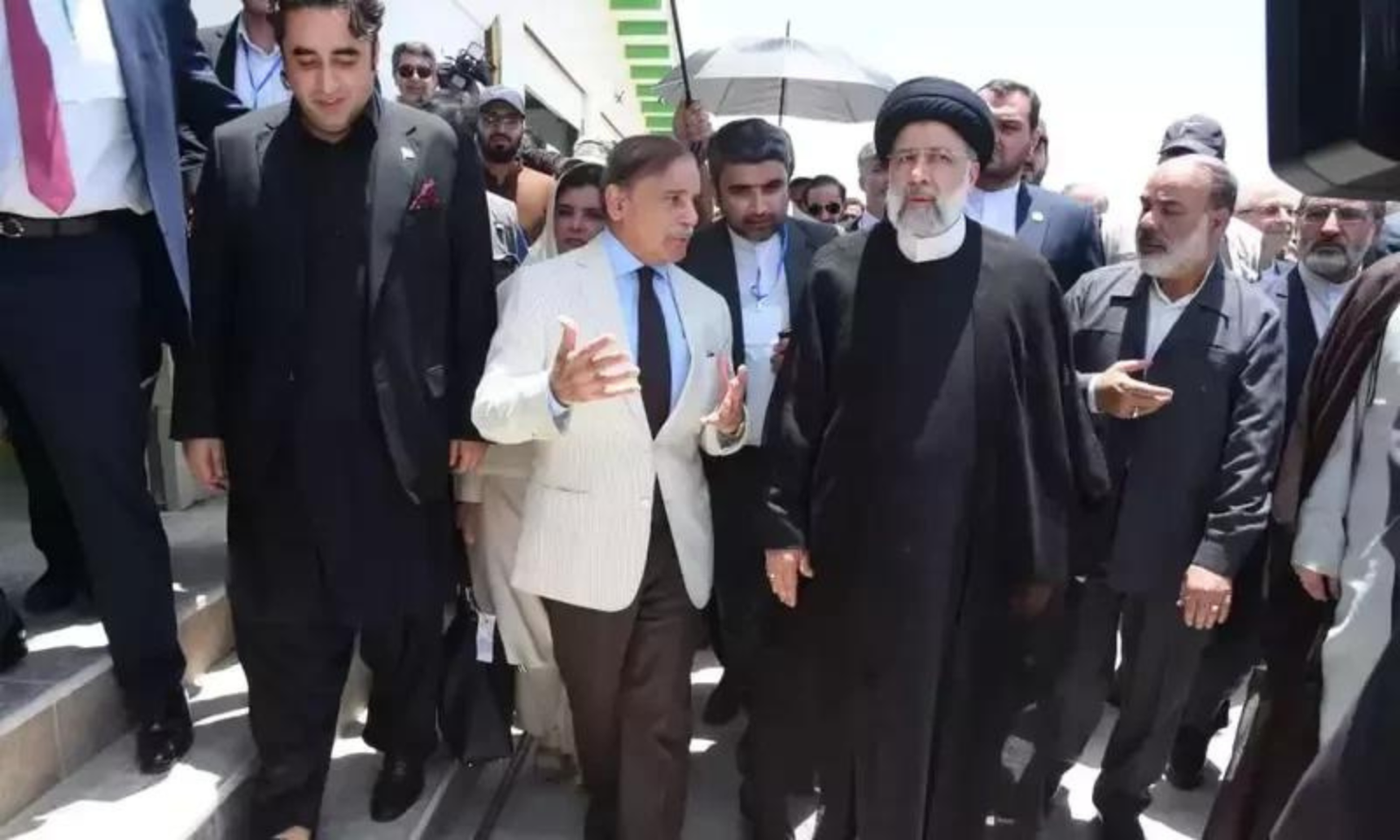
Criticizing Terrorism
Both nations denounce terrorism in all of its shapes and forms. They decided to take a cooperative stance against this threat and make use of the bilateral institutional mechanisms already in place to neutralize it. They also decided to fully uphold the UN Charter’s core values, especially those pertaining to member state sovereignty and territorial integrity.
Taking note of regional and international trends, both parties emphasized the significance of peacefully resolving conflicts through communication and diplomacy in order to identify solutions that both parties can agree upon for common problems.
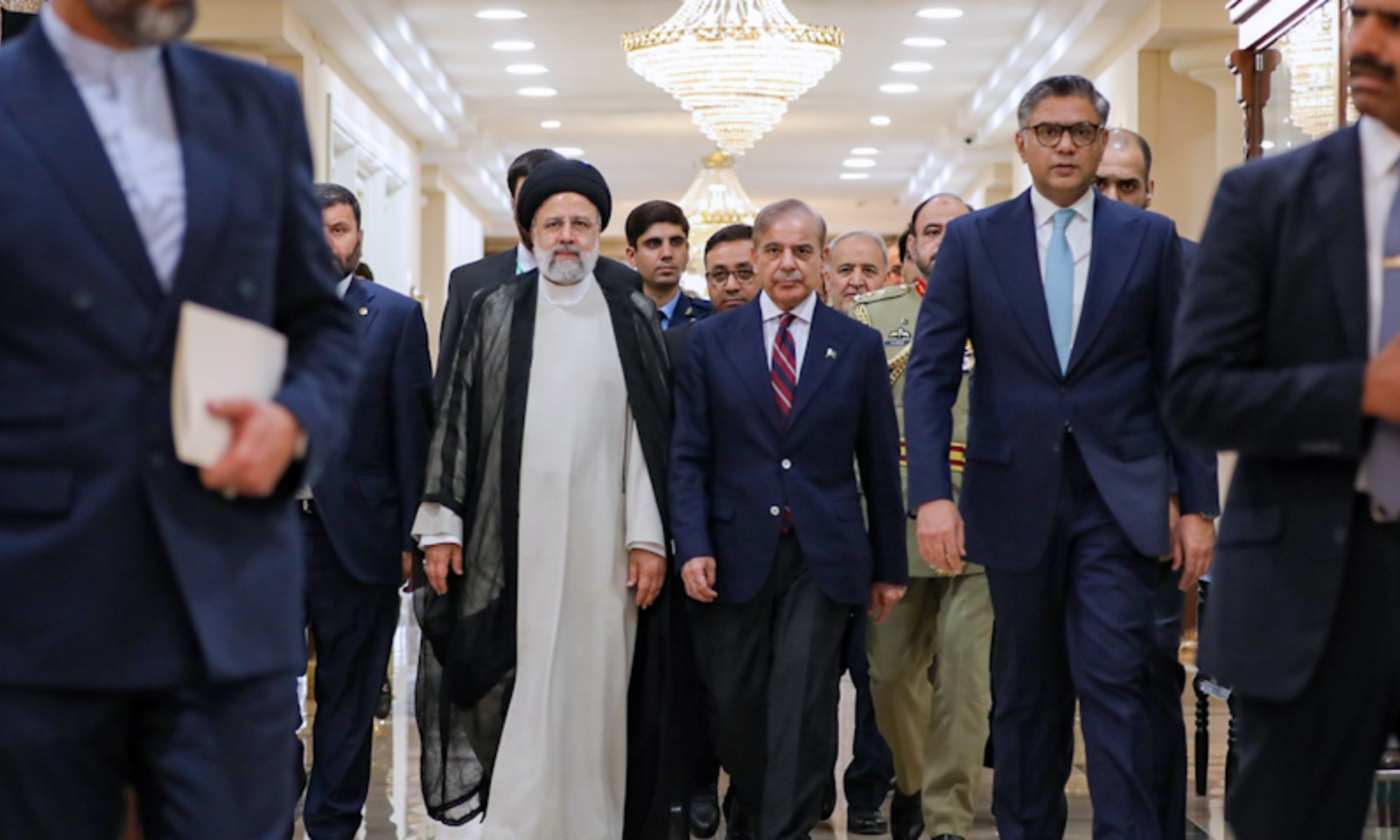
Positions on Gaza and Kashmir
The two leaders emphasized the necessity of resolving the Kashmir dispute amicably and in line with international law, as well as the wishes of the local populace.
They called for an immediate and unconditional ceasefire, unhindered humanitarian access to the besieged people of Gaza, the return of the displaced Palestinians, and the assurance of accountability for the crimes being committed by the Israeli regime. They expressed their strong and unwavering condemnation of the ongoing aggression and atrocities against the Palestinian people.
Contact Group SCO-Afghanistan
Both sides highlighted the significance of the early start of the SCO-Afghanistan Contact Group’s activities to coordinate efforts to maintain peace and build economic connections in the region and expressed satisfaction over their tight bilateral ties in all SCO organizations. They also demanded that the regional nations actively cooperate inside the ECO framework.
Iran and Pakistan reiterated their support for Afghanistan’s growth as a sovereign, independent nation free from the challenges of drug trafficking and terrorism.
The two sides underlined their determination to strengthen cooperation on counterterrorism and security and to forge a united front against terrorism, noting that the presence of terrorist organizations in Afghanistan presented a severe danger to regional and international security.
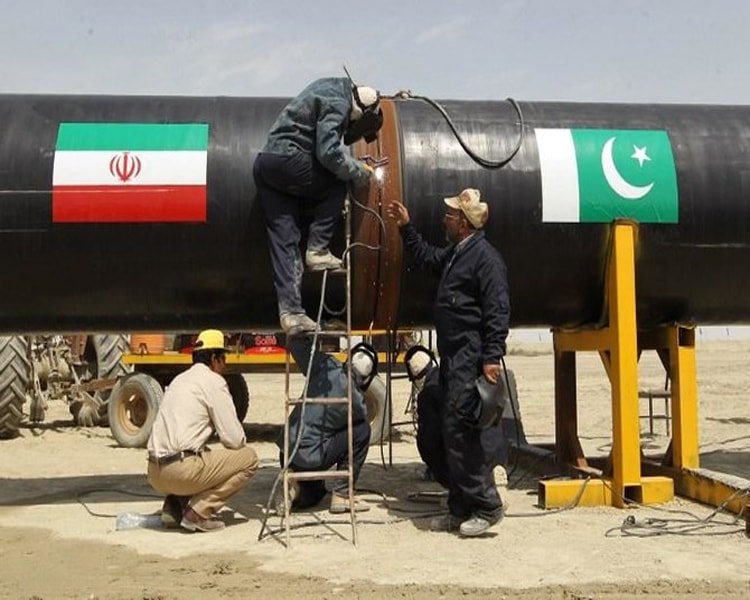
Prisoner Release
Based on the 1960 Treaty for the Extradition of Criminals and the Accused between Iran and Pakistan and the 2016 Agreement on the Transfer of Convicts between the two countries, the two sides declared their intent to free each other’s prisoners and take steps toward their extradition.
Iran-Related Attacks Are Denounced
The attack on the Consular Section of the Iranian Embassy in Damascus was sharply denounced by both parties, who also declared it to be unlawful in accordance with the 1961 Vienna Convention on Diplomatic Relations, international law, and the UN Charter.
Two prominent figures appealed to the UN Security Council to stop the Israeli government from encroaching on neighboring territories and attacking international diplomatic establishments.
Combating Islamophobia
In this regard, Iran and Pakistan welcomed the adoption of UN General Assembly Resolution 78/264, titled “Measures to Combat Islamophobia,” and called for the prompt appointment of a UN Special Envoy to combat Islamophobia. They also denounced the growing number of incidents of Islamophobia and the desecration of the Holy Quran and sacred symbols in some countries.
All aspects of the two nations’ cooperation in multilateral fora, such as the UN, ECO, SCO, OIC, D-8 Organization for Economic Cooperation, Asia Cooperation Dialogue (ACD), initiatives of the Meeting of Foreign Ministers of Afghanistan’s Neighboring Countries, and others, were welcomed by PM Shahbaz and President Raisi.
They also stated that they were in favor of initiating free trade negotiations within the ECO.

